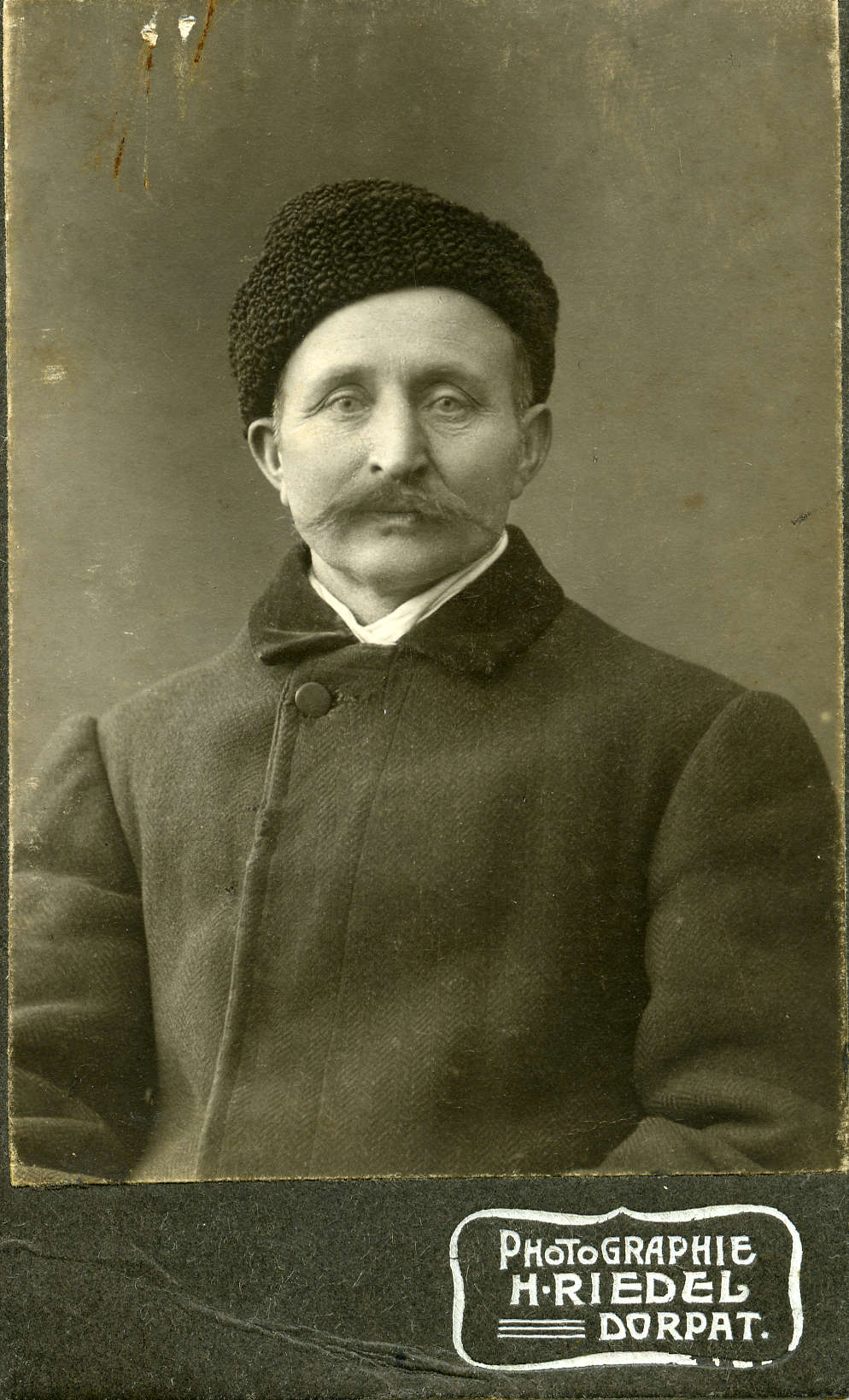
Eduard Ludwig Wöhrmann
Eduard Ludvig Wöhrmann (28 December 1863 – 25 November 1934) was a poet and literator.
Wöhrmann was born on Veski farm at Härjanurme village, Kursi parish, in Tartu County as the son of a farm renter. From 1872–1877, he attended Jõune village school, later worked on his father’s farm, was a wool comber and a miller’s apprentice at Härjanurme, Puurmani, Jõgeva and in Southern Russia. From 1907, he worked as a well-digger in Tartu where he lived until his death.
Wöhrmann made his debut in the 1880s, publishing poems in many newspapers and magazines. Eduard Ludvig Wöhrmann’s significance for the history of literature lies mainly in his bulky collection of poems Nõmme lillekesed (‘Heath Flowers’, 1903). The author’s creation, like that of many of his contemporaries, reflects the disappointment moods after Estonians’ first national awakening period.
The poetry collection is divided into thematic cycles where the themes are, for example, love, feelings of transience, contradictions between the rich and the poor. The most colourful and of lasting value are the mildly satirical poems about tragicomical situations caused by pecuniary differences, for example, marrying because of dowry. Such satirical scenes bear some semblance to Karl Eduard Sööt’s village satires which date from approximately the same period. The feeling of transience that pained the author since his youth is also similar to K. E. Sööt. In some poems, however, a tragic perception of the world in the manner of Juhan Liiv can be discerned. Some poems of this collection, like Eide unenägu (‘Old Woman’s Dream’) and Lapsed tuppa (‘Children, Come Inside’) were set to music in Wöhrmann’s lifetime already and have remained part of popular repertoire until the present.
Wöhrmann’s poems have simple, sometimes loosely rhyming end rhymes.
Wöhrmann wrote many verses of no particular artistic value for albums and calendars. In the 1920s, Wöhrmann penned one-act comedies like Jüri ja Mari, ehk peremees perenaise ametis (‘Jüri and Mari or the Master in the Role of the Mistress’) and Meie Mari pulm (‘Our Mari’s Wedding’) and paraphrases of fairy tales.
The obituary published in the newspaper Eesti Päevaleht in 1934 called Wöhrmann an undeservedly overshadowed poet whose creation sometimes approached the level of Heinrich Heine, the greatest paragon of Estonian lyricists of his generation.
L. P. (Translated by I. A.)
Books in Estonian
Poetry
Nõmme lillekesed. Jurjev: Hermann, 1903. 200 lk.
Plays
Jüri ja Mari, ehk, Peremees perenaise ametis: naljakas jant ühes waatuses. Tartu: Hermann, 1922. 24 lk.
Armu-kütid: naljakas jant ühes waatuses. Tartu: Hermann, 1923. 20 lk.
Meie Mari pulm: naljakas jant ühes waatuses. Tartu: Hermann, 1925. 24 lk.
Humour
Lõbus seltsiline. Noortele naljatuseks kokku seadnud Ed. L. W[öhrmann]. Jurjev: K. Jaik, 1906. 47 lk.
Manual
Kodujäneste kaswatus: nende tõugudest, nuumamine, liha ja nahkade tarwitamine ja haiguste rawitsemine jne. Tartu: Hermann, 1919. 80 lk.



